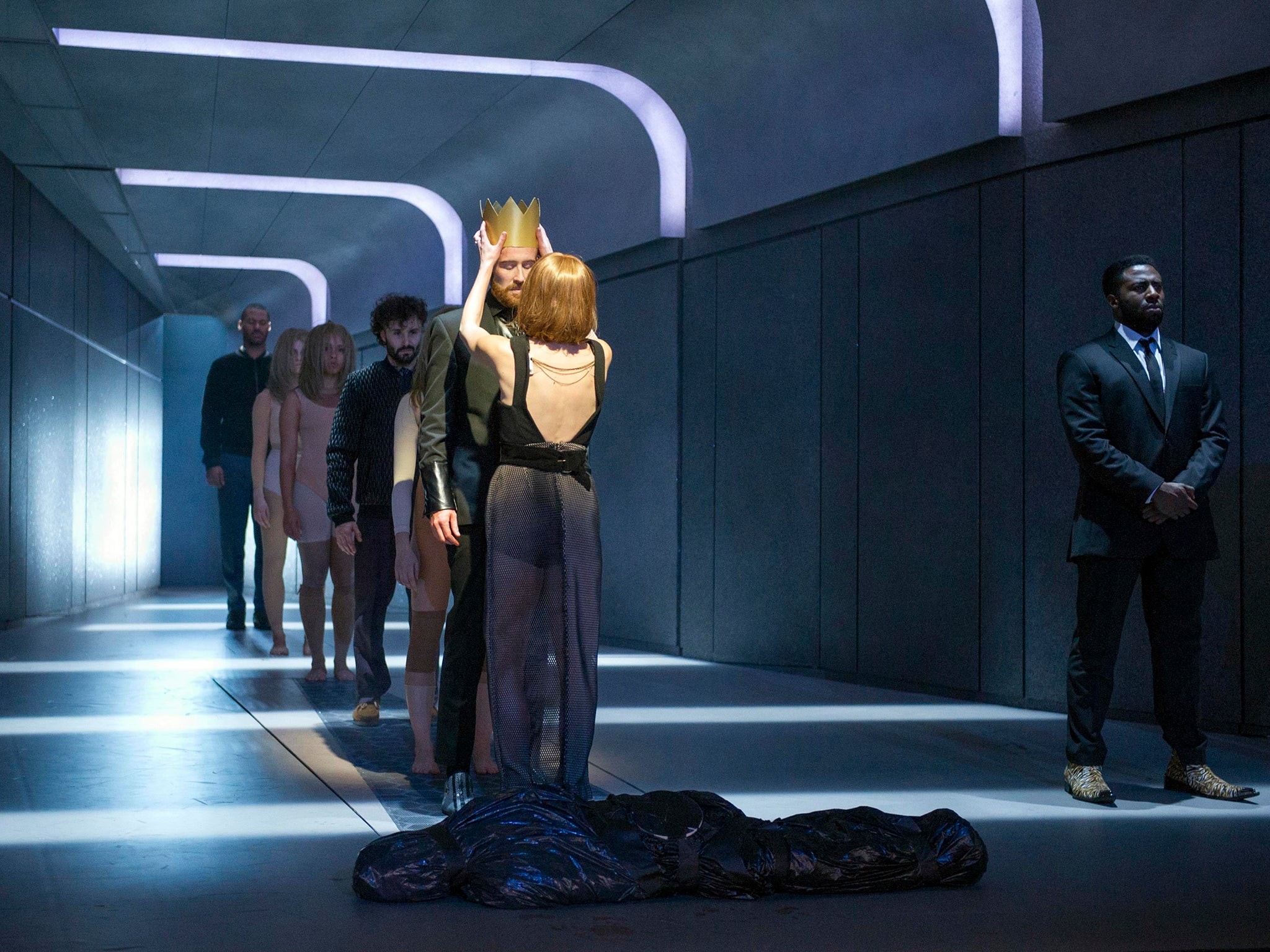Macbeth, Young Vic, theatre review: A disconcerting mixture of dance-deconstruction and cropped text
The former sometimes swamps the latter but it is also true that Macbeth speaks the verse with extraordinary intelligence

You'd think that director Carrie Cracknell and choreographer Lucy Guerin had just mugged their beloved grandmothers from the way that certain critics have reacted to this Macbeth. The production is in the spirit of the recent Measure for Measure –a bold make-over that is out to grab the kind of youthful audience that doesn't come laden with expectations, traditionalist or otherwise.
Set in a what looks like a treacherous, steeply receding bunker in a culture of brutal beheadings and Abu Ghraib-style reprisals, this arresting modern-dress Macbeth is a deliberately disconcerting mixture of dance-deconstruction (the witches in flesh-coloured leotards are a dominant presence -- like cat-walk mannequins with a mission to create conditions for maximum evil) and cropped text. The former sometimes swamps the latter but it is also true that John Heffernan PSTD-suffering Macbeth speaks the verse with extraordinary intelligence, acutely conveying how, as he withdraws into brutalised numbness, Macbeth's develops a nuanced awareness of what Keats called “the feel of not to feel it”. Anna Maxwell Martin's intriguing Lady Macbeth tries to brazen it out with a show of socially practised brusqueness, until in mad remorse, her piteous cradling of a phantom baby suggests the root of the problem.
Join our commenting forum
Join thought-provoking conversations, follow other Independent readers and see their replies
Comments
Bookmark popover
Removed from bookmarks